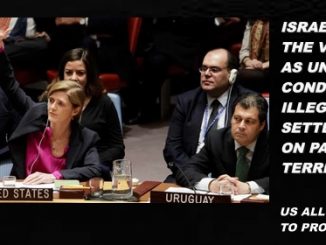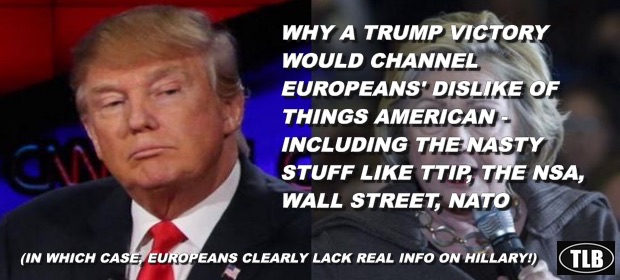
They won’t admit it in public, but some European politicians wouldn’t be too upset if The Donald wins
Matthew Karnitschnig
Careful observers of European politics might be forgiven for asking if — behind the exclamation of shock and horror over the prospect of a Donald Trump presidency — they don’t detect the occasional wry smile or hint of giddiness when the conversation turns to the U.S. Republican presidential candidate.
To be sure, hardly a day goes by without some senior European official voicing grave concerns over the possibility that Trump might win the elections. European Parliament President Martin Schulz warned recently that Trump “would be a problem not just for the EU but for the whole world.”
French President François Hollande, who faces his own challenges with right-wing populism, recently said Trump “makes you want to retch.” German Foreign Minister Frank-Walter Steinmeier, abandoning his usual rhetorical temperance last month, called Trump a “hate preacher.”
And yet, in some quarters at least, the Trump cloud carries with it at least a sliver of silver lining. No European politician will say so publicly, but to some on the Continent, Trump presents a once-in-a-generation opportunity for emancipation from American influence.
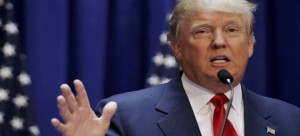
To varying degrees, America-bashing has been a mainstay on both the Right and Left of European politics for decades. From GMOs to Guantanamo, from the drone war to the death penalty, European politicians have rarely had difficulty finding reasons to rail against the U.S.
In fact, the evils of U.S. influence is one of the few things that European politicians from nearly every slice of the political spectrum can agree upon. In Germany, for example, one is just as likely to see an “Ami Go Home” (Ami is German slang for American) poster at a rally for the Left party as at a gathering of the far-right Alternative for Germany.
Just as the EU served as a convenient whipping post for British politicians of all stripes in recent decades, culminating in the Brexit vote, the U.S. serves a similar purpose for many European politicians. Even those who profess a deep commitment to the transatlantic relationship often can’t resist using the U.S. as a rhetorical foil to deflect attention from their own vulnerabilities.
As long as moderate politicians occupy the White House, anti-American politicians will find it difficult to turn their rhetoric into reality. A Trump presidency would force a rethink.
Just last week, Jean-Claude Juncker, hailing the Commission’s crackdown on Apple’s Irish tax penalty in his State of the Union speech, declared: “Europe is not the Wild West.” Anyone listening knew that “Wild West” means America. “We are not the United States of Europe,” Juncker added, to applause from the assembled MEPs. “We are much more diverse in Europe and stronger.”
Most Europeans at the center of Europe’s political spectrum genuinely fear the consequences of a Trump victory and a weakening of the Transatlantic relationship. But others smell an opportunity too good to be allowed to pass.
As long as moderate politicians like President Barack Obama or U.S. Democratic candidate Hillary Clinton occupy the White House, anti-American politicians will find it difficult to turn their rhetoric into reality. A Trump presidency would force a rethink.
Here are five reasons some European politicians are secretly rooting for Trump:
The end of free trade: From the outset, European trade negotiators warned that anti-Americanism posed the biggest threat to a sweeping transatlantic trade deal. The Transatlantic Trade and Investment Partnership (TTIP), the free-trade pact being negotiated by the U.S. and Europe, has been on life support for months. A Trump victory wouldn’t just douse any remaining hope for success, it would put a stake through the heart of the negotiations.
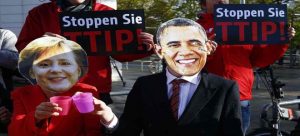
Opponents of the deal see it as the Trojan Horse of trade, designed to give U.S. companies even more influence in Europe. Trump has argued the opposite, that free-trade deals hurt American workers. The bottom line: a Trump victory would put a free-trade pact between the U.S. and Europe of any kind firmly off the table.
The birth of an EU army: The U.S. has guaranteed Europe’s security for decades through NATO, effectively placing a giant security umbrella over most of the Continent. That reliance doesn’t sit well with everyone.
Though Europe doesn’t have anywhere near the military resources of the U.S. (American military spending accounts for about 75 percent of the NATO total), politicians in France and Germany are eager to get to work on a European defense force. The idea isn’t new and faces myriad hurdles, mainly the question of how to finance it on Europe’s shoestring budget.
Nevertheless, a Trump victory would give the initiative a major boost. As with the trade deal, Trump would likely be happy to let the Europeans fend for themselves. He has made no secret of his distaste for Europe’s reliance on the U.S. military. Conversely, few Europeans would welcome Trump as commander-in-chief. If he wins, proponents of a European army would finally have the compelling argument they’ve been looking for.

Breaking up big brother surveillance: Europe’s most emotional gripe about American influence in recent years has revolved around mass surveillance. Edward Snowden’s revelations have convinced Europe that nobody — be it Angela Merkel or the man on the street — is safe from the NSA’s digital dragnet.
Though the reality is somewhat less dramatic, that narrative has carried the day and many Europeans are convinced the U.S. is listening to their phone calls. Snowden, a man Trump argues should be executed, has become a modern-day Che Guevara for Europe’s youth. For all the transatlantic tensions around mass surveillance, Europe still cooperates with the U.S., mainly to get access to intelligence on Islamic terrorists. A Trump victory would be welcome news to those opposed to such cooperation.

Edward Snowden
Cracking down on Wall Street: The influence of Wall Street banks in Europe has long been a bee in the bonnet of Europe’s anti-American elites and populists alike. No conspiracy theory about the eurozone debt crisis, for example, is complete without dark hints about suspected machinations in New York’s financial district.
The recent brouhaha about former Commission president José Manuel Barroso joining Goldman Sachs illustrates the depth of the distrust. “Goldman Sachs was one of the organizations that contributed to the financial crisis in 2007-2009, so we wonder about this particular bank,” Juncker last week, explaining why he called for an investigation into Barroso’s move. Never mind that the EU has no specific ban on officials working for Goldman or that plenty of European banks, such as Deutsche Bank, also had a hand in the turmoil.
Justified or not, the bottom line is that Wall Street is considered a toxic force in Europe. Politicians on the Left have had Wall Street banks in their sights for some time. A Trump win would present a good opportunity for a crackdown.

Jose Manuel Barroso
Schadenfreude: The most powerful force driving Europe’s secret hopes for a Trump victory is simple schadenfreude. Most Europeans never bought the U.S.’s “city on a hill” claims of exceptionalism. And yet for decades, they’ve been subjected to American claims of moral superiority.
Not only did the U.S. liberate Europe from fascism, it also freed the Continent from the clutches of communism, goes a common refrain. To more than a few Europeans, President Trump would prove that the U.S. is really no different than the Continent: just as dysfunctional, just as vulnerable to its basest instincts and just as susceptible to the false promises of a demagogue.
************
ER recommends other articles by Strategic Culture Foundation and Politico.eu where this article originally appeared
About the author
Matthew Karnitschnig is POLITICO’s chief Europe correspondent, based in Berlin. He joined the publication in 2015 from the Wall Street Journal, where he spent 15 years in a variety of positions as a reporter and editor in the U.S. and Europe.
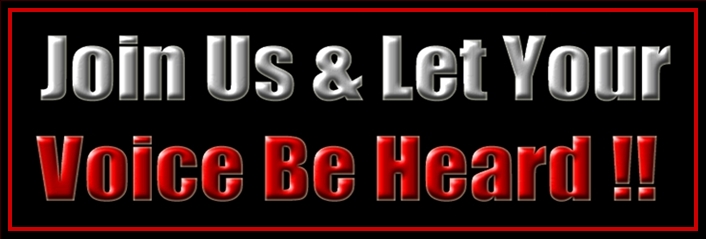 Find out about our great (WOW) TLB Project Membership package and benefits, add your voice and help us to change the world!
Find out about our great (WOW) TLB Project Membership package and benefits, add your voice and help us to change the world!




